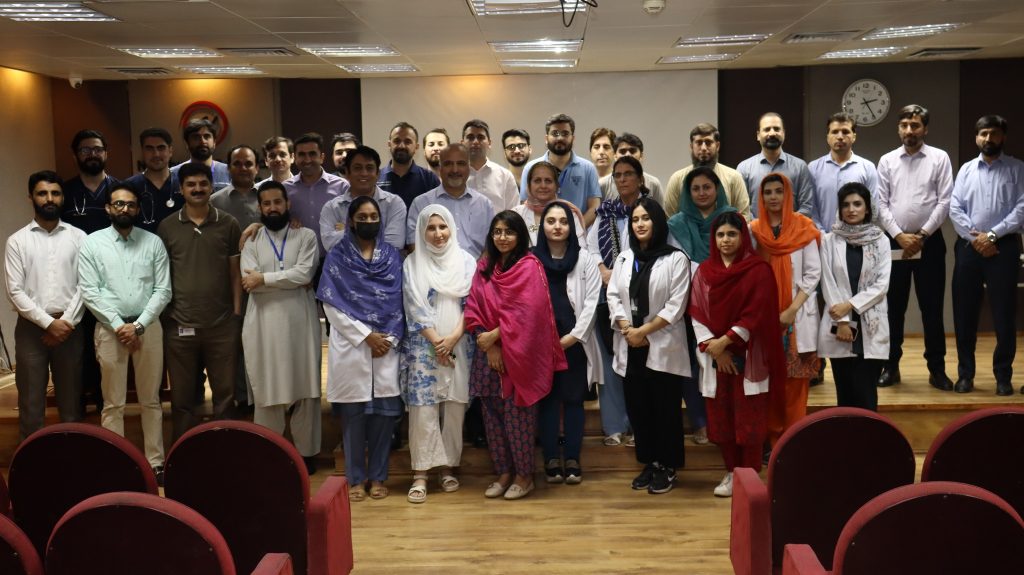Symposium on GLP-1 Receptor Agonists: A Paradigm Shift in Weight Management and Metabolic Health
The Medical Professional Education Department (MPED), in collaboration with the Endocrinology Department at Northwest General Hospital & Research Centre (NWGH & RC), Peshawar, organized a symposium titled “GLP-1 Receptor Agonists: Catalyzing a Paradigm Shift in Weight Management and Metabolic Health” on Wednesday, 21st May 2025.
The keynote speakers included Prof. Dr. Arshad Hussain (Consultant, Endocrinology and Diabetology), Dr. Nizamud Din, and Dr. Aqil Noor (Senior Registrar). They delivered in-depth presentations on the expanding therapeutic potential of GLP-1 receptor agonists (RAs) in managing diabetes, obesity, cardiovascular health, and other metabolic conditions.
Consultants from various specialties, including Obstetrics & Gynecology, Orthopedics, Pulmonology, Nephrology, Gastroenterology, and Rheumatology, attended the event, highlighting the interdisciplinary relevance of the topic.
Prof. Dr. Arshad Hussain emphasized the pivotal role of GLP-1 RAs in the management of type 2 diabetes, noting their ability to achieve effective glycemic control without significantly increasing the risk of hypoglycemia. He discussed how agents such as semaglutide and liraglutide have demonstrated substantial reductions in HbA1c and fasting plasma glucose by enhancing insulin secretion and suppressing glucagon.
He also elaborated on the benefits of GLP-1 RAs in treating obesity, particularly among patients with Polycystic Ovary Syndrome (PCOS). These agents have shown comparable improvements in body weight, BMI, and waist circumference in both PCOS and non-PCOS individuals. Given the high prevalence of insulin resistance in PCOS, GLP-1 RAs offer added benefits by enhancing insulin sensitivity, reducing inflammation, and improving lipid metabolism and glucose transporter expression.
The symposium also highlighted the cardiovascular benefits of GLP-1 RAs, including reductions in major adverse cardiovascular events, improved endothelial function, and decreased cardiovascular morbidity and mortality among patients with diabetes and obesity. Emerging applications in the management of Metabolic Dysfunction-Associated Steatotic Liver Disease (MASLD), Chronic Kidney Disease (CKD), and even neurodegenerative disorders such as Alzheimer’s disease were also discussed. Furthermore, their potential roles in regulating gut microbiota and bone metabolism were noted.
The event concluded with a closing address by Prof. Dr. Sidra Jehangir, Dean, MPED, who appreciated the insightful presentations and the enthusiastic participation of attendees. She emphasized the importance of evidence-based advancements, continued medical education, interdisciplinary collaboration, and patient-centered care in optimizing outcomes for individuals with diabetes, obesity, and related metabolic disorders.

